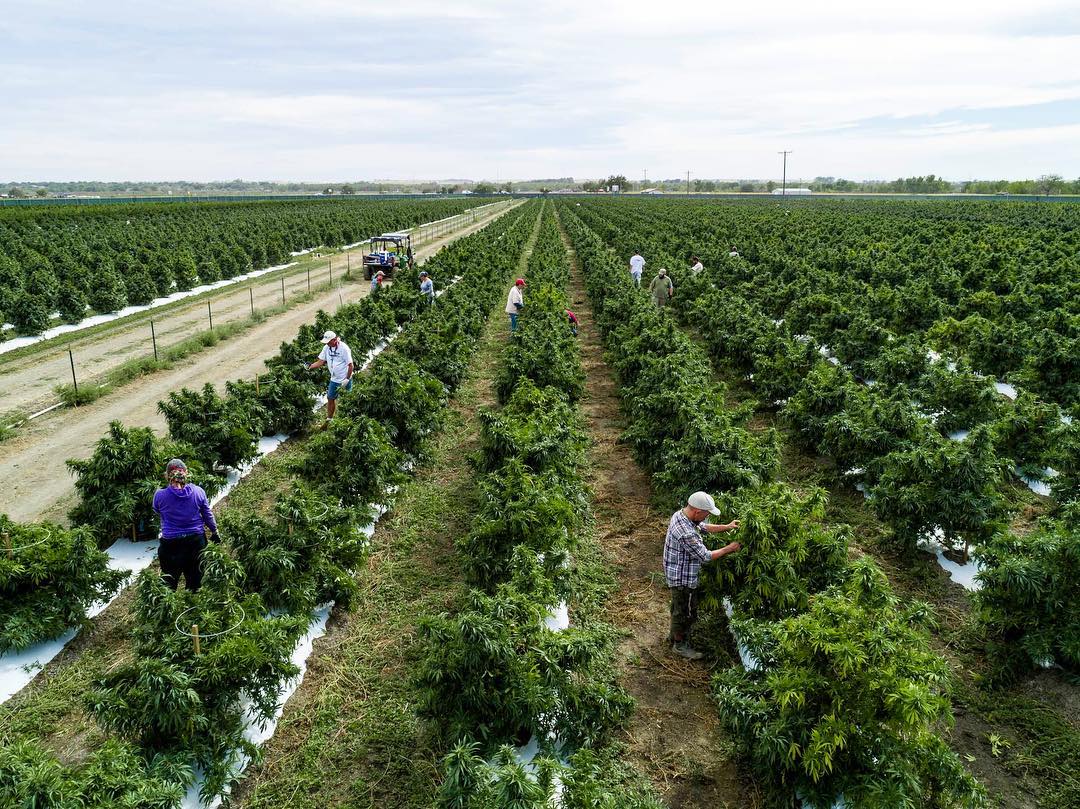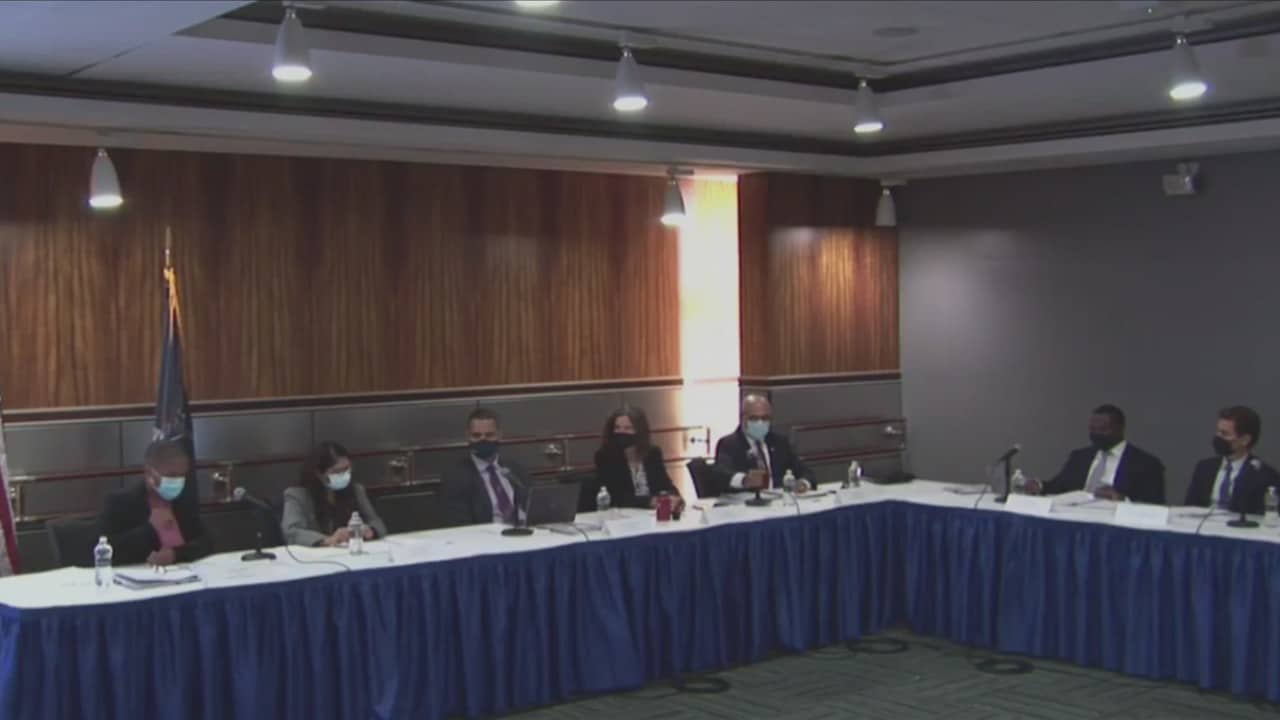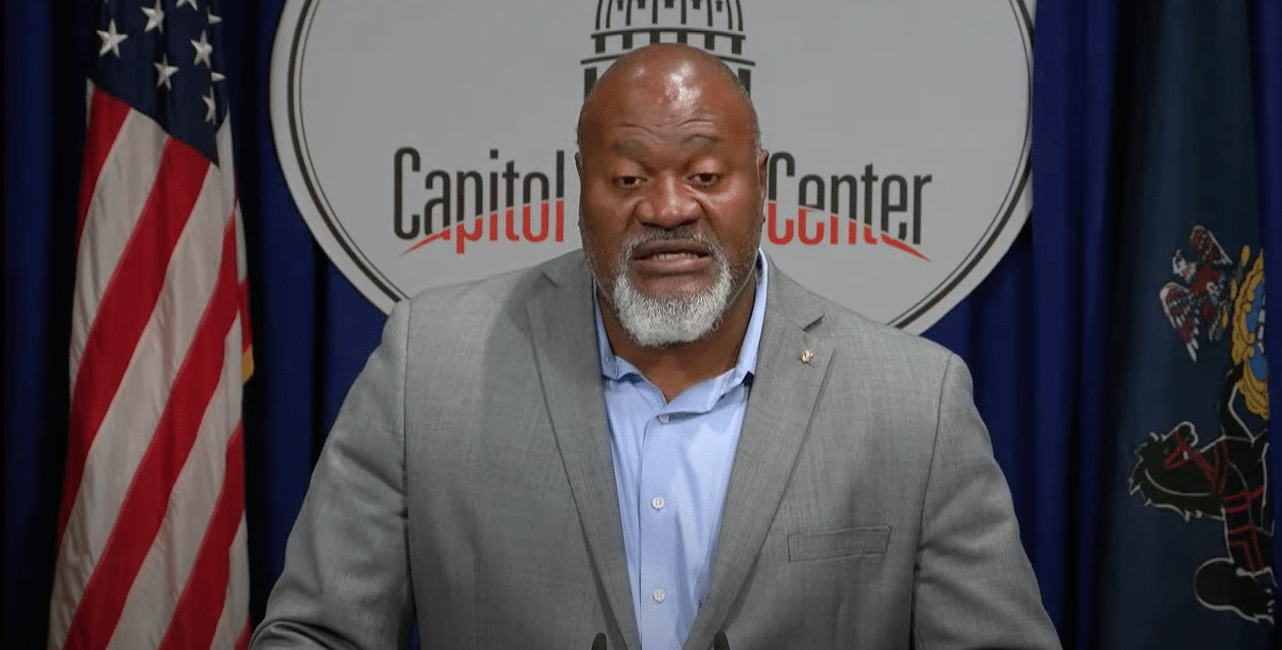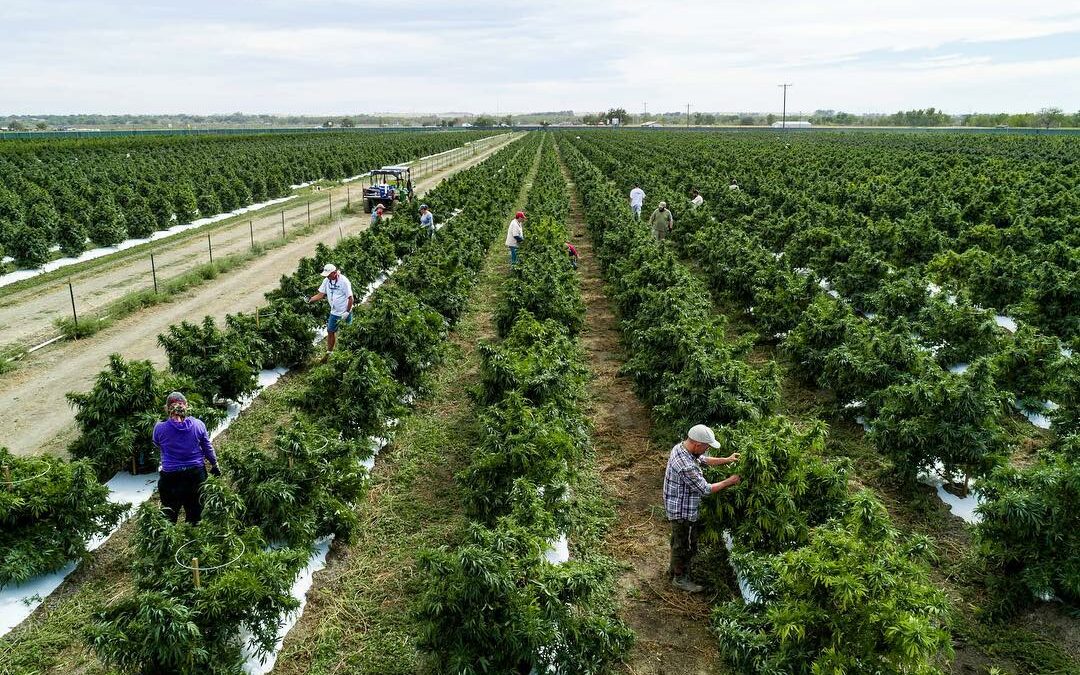
by The Real Dirt | Oct 11, 2021 | Blog, Business, Cannabis Business, Cannabis News, Industry News, Legalization
One of the country’s largest marijuana companies has officially purchased one of the country’s largest outdoor marijuana growing operations.
Curaleaf, a publicly shared marijuana corporation with business holdings throughout America and Europe, just announced that it has finalized the acquisition of Los Sueños Farms, Colorado’s largest outdoor marijuana growing operation. The purchase, worth a reported $67 million in cash, stock and assumed debt, was first announced in May, but didn’t close until this month, according to Curaleaf.
Two Pueblo dispensary licenses previously held by Los Sueños were included in the deal.
Under the agreement, 61 percent of the sale price will be paid in Curaleaf shares, 29 percent in cash and 10 percent in acquired debt. According to Curaleaf, Los Sueños founder Bob DeGabrielle will continue to oversee the farm and “take responsibility” for the company’s wholesale and retail operations.
Located in Pueblo County, Los Sueños’ outdoor marijuana cultivation comprises 66 acres of land with an additional 1,800 plants grown in an on-site greenhouse facility. Los Sueños originally agreed to an acquisition offer from Shwazze, then named Medicine Man Technologies, in 2019. However, Schwazze terminated the deal in 2020 for undisclosed reasons.
Los Sueõs joins over 130 dispensaries and growing operations across 23 states currently owned by Curaleaf, as well as a handful of infused-product brands, including Blue Kudu, a Colorado edibles maker purchased in 2020 for an undisclosed amount. Curaleaf also launched Select Cannabis, a line of vaporizer products and edibles, in Colorado earlier this year — after acquiring the original Select brand in Oregon.
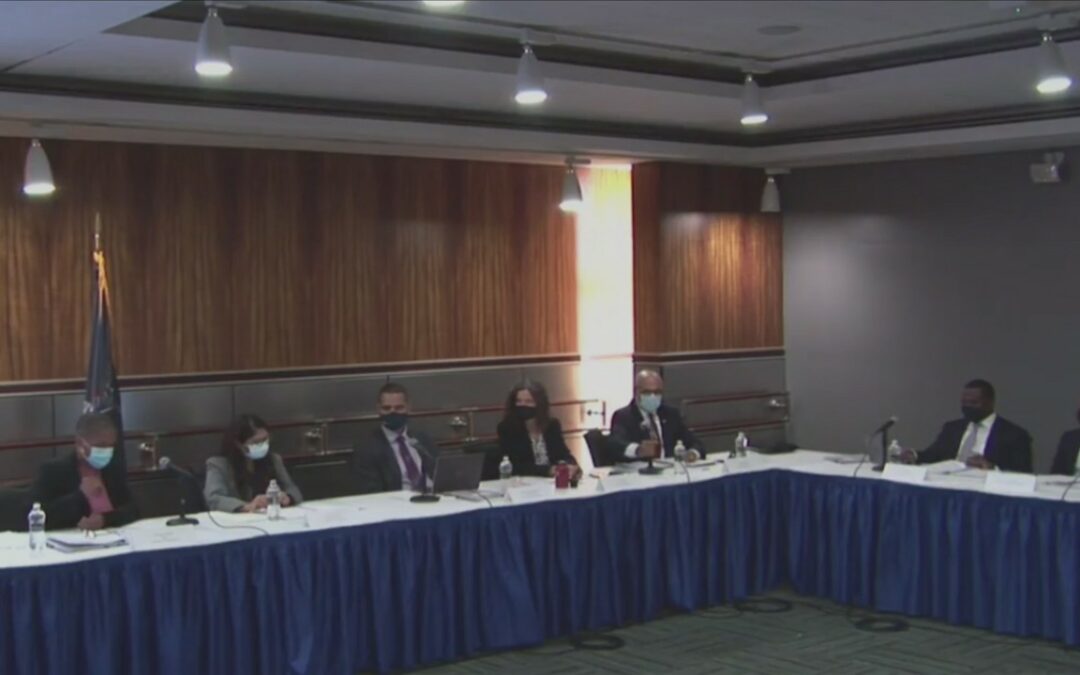
by The Real Dirt | Oct 7, 2021 | 420 News, Blog, Business, Cannabis Business, Cannabis Law, Cannabis Law and Compliance, Cannabis News, Industry News, Legalization, Politics
New York marijuana regulators on Tuesday sought to make up for delays in the drug’s rollout by approving a chief equity officer and making immediate changes to the medical cannabis program during the inaugural meeting of the state Cannabis Control Board.
The five-member board charged with implementing marijuana legalization and advancing the state’s cannabis industry set a clear tone: They wanted to move past delays in implementing the Marijuana Regulation and Taxation Act.
The state law legalizing marijuana took effect in March, but infighting between then-Gov. Andrew Cuomo and the state Legislature exacerbated delays in getting members appointed to the board, slowing down the work of getting regulations for legal sales in place.
“The MRTA was signed into law on March 31. But we were not able to begin the work of establishing New York’s cannabis market until Sept. 22, when the full cannabis control board was appointed. As such, there was a six-month delay to make up,” Christopher Alexander, executive director of the Office of Cannabis Management, told the board Tuesday afternoon.
The state legislature ended its regular session without making appointments to the board because lawmakers had been entangled in a fight with Cuomo over appointments to the Metropolitan Transportation Authority.
Since Cuomo left office in August, Gov. Kathy Hochul has made getting the board going central to her early administration, saying in a statement announcing several new members of the board: “New York’s cannabis industry has stalled for far too long.”
The impact of the slow rollout could be felt. A portion of the law that would allow marijuana cardholders to grow plants six months after the law went into effect was delayed because the board was not in place, the Times Union in Albany reported.
But on Tuesday, the regulators moved ahead with several changes to the medical cannabis program. They include permanently waiving a $50 registration fee for patients and caregivers and making the whole flower an approved form of medical cannabis product.
Another provision allows for a 60-day supply of medical cannabis to be given to a certified patient or designated caregiver instead of a month supply.

by The Real Dirt | Sep 30, 2021 | Blog, Cannabis Business, Cannabis Law, Cannabis Law and Compliance, Industry News, Legalization, Politics
The news this week that a small Massachusetts town is charging more than $1.3 million in “impact fees” to the three cannabis companies operating within its city limits has reopened the debate over the true impact of cannabis businesses on local communities.
In a recently filed
lawsuit, the cannabis retailer
Stem revealed that the city of Haverhill, Massachusetts, is charging its three cannabis businesses a total of $1.3 million in annual impact fees—and $866,930 of that total is earmarked for the town’s police department.
Those impact fees are being charged despite the fact that myths about cannabis businesses boosting crime have been debunked time and time again. In fact, there’s evidence that cannabis legalization can actually improve local crime clearance rates.
Even as they operate as positive law-abiding forces in their communities, cannabis companies still have to combat the negative stereotypes perpetuated by America’s War on Drugs.
Without any evidence of negative community impact, we’re left to wonder why some towns and cities are allowed to charge cannabis businesses for additional policing.
Cannabiz impact in Massachusetts
Massachusetts’ legalization law allows local communities to charge impact fees that are “reasonably related to the costs imposed upon the municipality by the operation of the marijuana establishment.”
Unlike most other legal states, Massachusetts law forces cannabis companies to sign Host Community Agreements (HCAs) with the town in which they operate. This gives local communities enormous leverage over cannabis companies—which encourages them to tax the daylights out of the local weed stores.
Many Bay State towns use HCAs to create their own mitigation fees based on how they imagine cannabis businesses will impact their townships.
The law was put in place in 2018, when there was little data about the impact of cannabis companies on rates of local substance abuse, intoxicated driving, and crime.
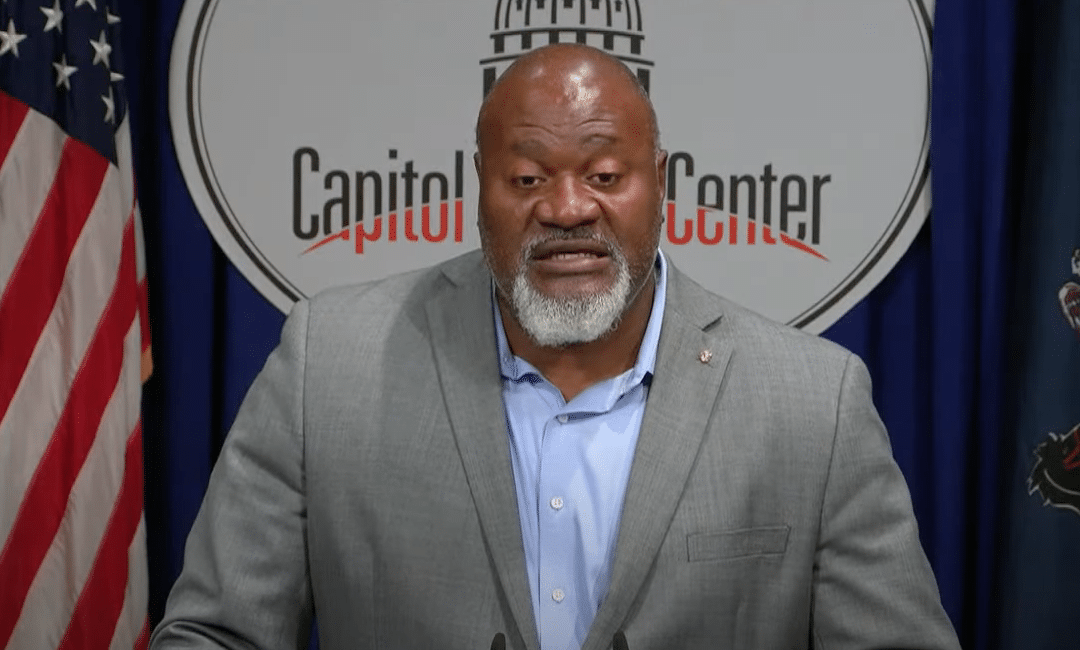
by Travis C | Sep 29, 2021 | 420 News, Blog, Cannabis Business, Cannabis Law, Cannabis Law and Compliance, Legalization, Politics
Rep. Jake Wheatley (D) has introduced a new bill that would legalize Pennsylvania cannabis for adult use. Previous bills have been shot down by the state legislature, but HB 2050 has some revisions that Wheatley is hopeful will help it get through to the Governor’s desk.
Governor Tom Wolf has expressed numerous times his support for broader Pennsylvania cannabis legalization, however the Republican led state legislature has rejected every attempt so far.
Pennsylvania House Bill 2050
House Bill 2050 creates a dynamic permitting structure for growers, processors and dispensaries, allowing any size company to enter the legal cannabis market. This includes lowering initial application and permit fees to alleviate financial barriers. Renewal fees will be based on gross revenue; the higher a company’s gross revenue the higher their renewal fee, which is the fairest way to do it.
Among other things, my bill provides for the Commonwealth Reinvestment Fund (CRF). Specifically, the CRF will fund the following initiatives;
- Minority and Women Grant Program to help disadvantaged populations benefit from this new industry,
- Student Loan Reimbursement Program,
- Mixed Income Housing Program,
- After-School Programs,
- And a public information campaign to educate the public on adult-use cannabis
Under this legislation, a wholesale tax of 10% will be levied on business to business transactions. Growers and processors who partner with an existing Pennsylvania Farm will not be required to pay the wholesale tax. Consumers will see an excise tax (in addition to sales tax) that will start at 6% for the first two years, 12% for years three and four, and then 19% for each year after.
Wheatley’s reasoning for pushing HB 2050 is similar to that of legislators in other states that have moved forward with cannabis legalization. The war on drugs has negatively impacted minority communities that most, and Pennsylvania cannabis legalization would give priority to those most disproportionally affected.
The bill also includes a “clean slate” provision that would help those charged with crimes under the Controlled Substances Act related to cannabis lessen or even wipe prior convictions. In a press conference Tuesday, legislators also used the example of 2019’s vape epidemic — a controversy that impacted over 2,000 consumers — as a reason for legalizing, stating that keeping cannabis illegal only helps the illicit market thrive.
The Pennsylvania state legislature has yet to hold a vote on HB 2050. If passed, Pennsylvania would join 16 other states that have legalized adult-use recreational cannabis.

by Travis C | Sep 28, 2021 | Blog, Business, Cannabis Business, Cannabis Law, Cannabis Law and Compliance, Cannabis News, Industry News, Legalization, Politics

Nearly a year after passing a constitutional amendment to legalize cannabis, New Jersey has yet to open a single retail cannabis store. While the industry has yet to take off, that isn’t stopping regulators from preemptively banning one of the most popular cannabis products.
When it comes to the cannabis products that consumers want, flower remains king. Vaporizer pens and concentrates for dabbing have been slowly catching up with flower as consumers seek a quicker way to get the desired effects of cannabis without burning the plant itself.
However, cannabis edibles have also been gaining popularity. Avoiding the need for any sort of inhalation at all, edibles are great for consumers who don’t want to vape or smoke, but still want the effects of cannabis.
Cannabis beverages have seen the greatest growth since the beginning of 2020, when cannabis sales skyrocketed across the country due to the COVID-19 pandemic. Cannabis capsule products have also grown noticeably in popularity, showing that consumers are seeking a way to consume cannabis without, well, consuming traditional cannabis.
With such growth in the edible cannabis market, it would seem obvious to any potential industry that is about to open that edibles will be a high-demand product. Higher demand means higher profits, which is what any state is seeking when legalizing cannabis.
Unless you’re New Jersey.
Ban on almost all cannabis edibles
Despite having no functional legal cannabis industry to base their decision, regulators in charge of New Jersey’s recreational cannabis have decided to ban all forms of edible cannabis products except for lozenges. This means traditional products consumers would likely be familiar with — cookies, brownies, gummies, beverages — are all prohibited.
The reasoning behind the ban is the same used by many states when they first legalize; the children. Concern over edible products that might appeal to children is a consistent issue in the legal cannabis industry.
While other states passed new regulations requiring child-proof packaging and prohibiting edibles from being designed in a manner that would be appealing to kids (i.e. gummy bears, star-shaped cookies, etc.), New Jersey has decided to take a much more restrictive approach.
According to the new set of regulations passed by New Jersey cannabis regulators, “ingestible forms of cannabis… shall only include syrups, pills, tablets, capsules, and chewable forms.”
A growing and thriving grey market
Just because regulators are dragging their feet in getting a functional legal cannabis industry up and running doesn’t mean that the people aren’t already taking advantage of the new law. Seemingly taking a tip from the Washington D.C. playbook, New Jersey has begun to develop a thriving grey market industry.
While there is nowhere to legally buy or sell cannabis directly, there’s a workaround. Similar to how D.C.’s grey market operates, New Jersey currently has a gift/donation system in place to skirt the current regulations.
In this grey market, a consumer may find a delivery service online. One the website one might see several different cannabis products, or “packages” as they might be called. However that isn’t technically what the consumer is buying.
Instead, the cannabis product is simply a “gift” that is included with the purchase of another item on the website. This might be a sweatshirt, a t-shirt, or even something as small as a sticker. The price of the sticker may be around $40, which conveniently is the same price as an eighth of cannabis.
Within a couple hours, a delivery driver will be at the door with the sticker and the included gift, and bam you just “bought” legal cannabis in New Jersey. But just like D.C.’s grey market, the grey market in New Jersey is completely unregulated.
Although a legal cannabis company has to follow strict regulations on manufacturing and packaging, an unregulated market like that which is blooming in New Jersey has no such restrictions. So while regulators may think they are making progress by banning various forms of edible cannabis products, these new rules will be all but ignored by those operating in the grey market already.
In other words, the new regulations can’t possibly have any sort of impact until there is an actual legal industry to enforce them. As regulators take their time getting the legal cannabis industry up and operational in New Jersey, the grey market will continue to thrive only making it more complicated to get legitimate businesses licensed and running.
If you are interested in learning more about the New Jersey cannabis industry, need assistance with licensing, planning and implementation of your business plan, Greener Consulting Group can help you stay on top of the latest regulatory changes, fees and best practices for getting ahead of the competition when the industry takes off.

by The Real Dirt | Sep 23, 2021 | 420 News, Blog, Business, Cannabis Business, Cannabis Law, Cannabis Law and Compliance, Cannabis News, Industry News, Legalization, Politics
The U.S. House of Representatives late Tuesday night approved a bill that would let banks to do business with cannabis companies without fear of penalty, giving traction to the least-disputed reform sought by the growing industry.
The so-called SAFE Banking Act would be a boon for marijuana companies, which have so-far been stymied by the necessity to deal in cash because of federal restrictions. That has meant they have extra security costs and logistical problems, even as marijuana increasingly becomes legal. Some three dozen states now allow medical or recreational use, according to New Frontier Data, a cannabis research firm.
The measure, which has been passed by the House before with bipartisan support, was this time approved by voice vote as part of the National Defense Authorization Act.
Representative Ed Perlmutter, a Colorado Democrat, who had re-introduced the bill, has said that allowing cannabis businesses to access the banking system would bring more money into the economy and offer the opportunity to create good-paying jobs. The American cannabis industry had $20.3 billion in legal sales in 2020, according New Frontier Data.
The bill’s prospects are unclear in the Senate.
Yet it’s still a far cry from the wish-list of legal reforms that the industry seeks, including all-out legalization, and relief from tax burdens.
The U.S. Cannabis Council, a trade group that represents companies in the industry, called the current rules that require marijuana firms to be all-cash a security hazard.
“Over $17 billion in legal cannabis was sold in the United States last year, overwhelmingly through cash transactions. Forcing legitimate, well-regulated cannabis businesses to conduct most of their business in cash is anachronistic and a clear threat to public safety,” the council’s chief executive Steven Hawkins said in a statement before the bill passed.
BTIG analyst Camilo Lyon said in a research note this week that the SAFE Act’s inclusion with the defense authorization might enhance its prospects.
“Discussions with our D.C. contacts suggest it has an easier pathway of getting through the Senate, largely because no senator wants to be viewed as holding up the massive 1,700 page must-pass NDAA simply because of SAFE banking,” Lyon wrote.

